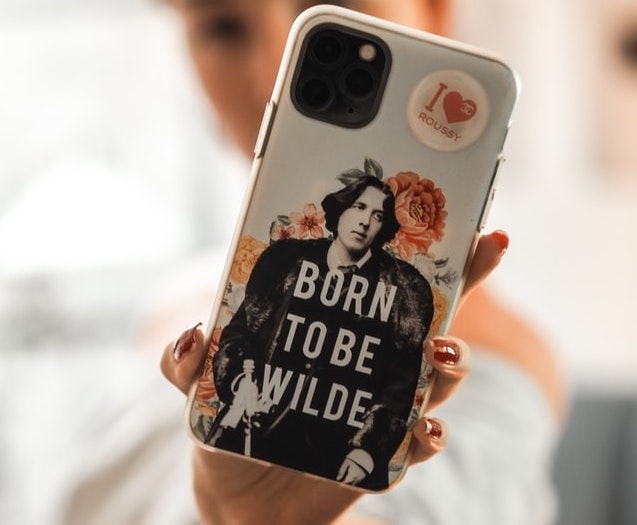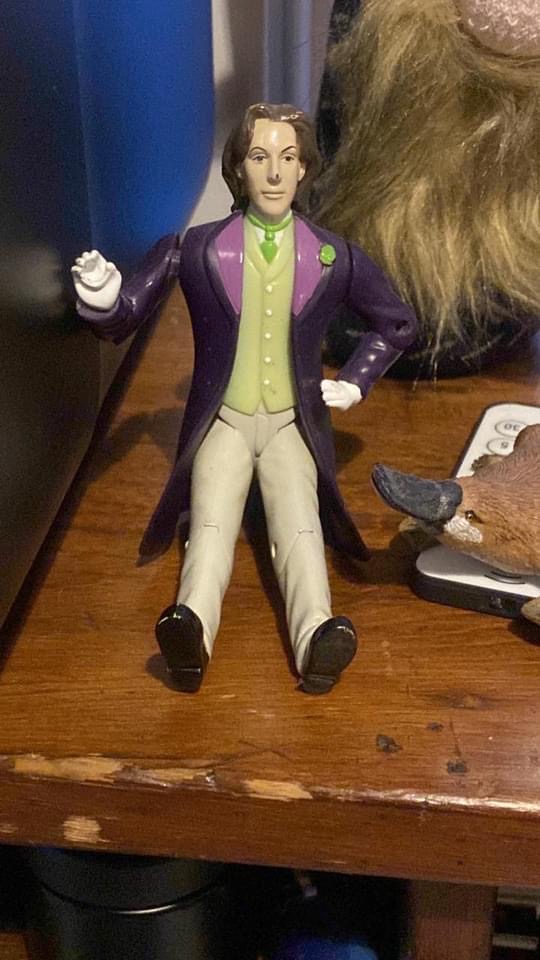

It’s Not What You Say But How You Say It
Oscar Wilde once wrote, “The artist is the creator of beautiful things. To reveal art and conceal the artist is art’s aim….They are the elect to whom beautiful things mean only Beauty. There is no such thing as a moral or immoral book. Books are well-written or badly-written, that is all….All art is quite useless.” The preceding quote is from the Preface to his seminal classic, The Picture of Dorian Gray, and if you know me whatsoever, you know I absolutely fucking love that novel. And yes, I put that f’word in there intentionally. I did it for the purpose of dramatic effect because as an author, I consciously pour over each and every word I type trying to mine nuggets of eloquence and beauty in the midst of the raw ore of exasperated prose. More than anything else I endeavor to do in this little weekly diatribe, I strive to form words into art, and that is the whole point of this week’s column.
One of the reasons I love Dorian Gray is that lyrically philosophical Preface where Oscar Wilde effectively encapsulates the entire Art Pour L’Art Aesthetic movement that came of vogue in the late nineteenth and early twentieth centuries. I will spend days of class time focused on how Wilde was rejecting critical focus on a work’s supposed meaning and emphasizing instead its form, its inherent style and beauty. Wilde din’t care what the work was trying to say. He wanted to relish its literary juices flowing down his chin and savor the aesthetic construction of each and every sentence.

Like many people, I was drawn to literature by ideas. It was the philosophical tie to nature and Eastern philosophy in Emerson and Thoreau that engaged my verbal imagination, and we all have song lyrics that we go to time and again because they simply speak to us. But as I have told many a student over the years, there are no more new ideas. Human history is simply too long to think you have anything new to say. Think your story of a great and powerful love lost has never been heard before? Yeah, how about you go read Romeo and Juliet. Think your tale of oppression and marginalization has never been heard before? Oh please. You name the downtrodden group, and I’ll name the novel. And don’t even get me started on your Dystopian concept. I read The Art of the Deal years ago. So why bother to write? Why waste our time constructing stories and poems with themes and underlying messages that have already been told before? The purpose of art is not to come up with new and novel ideas but in finding ever more beautiful, ever more creative ways of expressing those same ideas. For it is in the creation of the beautiful that the passion for living resides.
That’s what Wilde means when he suggests that art is “useless”. He doesn’t mean that art is like my dad after a couple of gin and tonics; Wilde is suggesting that art does not need to have a purpose other than making the world a better place through the creation of the beautiful. It is not here to convince you of anything or change your thinking. It does not need to be moral or immoral. That is entirely irrelevant. It does not need to create awareness or serve a cause. In fact, while art can very much do all those things, what distinguishes art from mere rhetoric is its ability to be perceived and appreciated solely for its inherent artistic merit, for its provocation of our aesthetic sensibilities. When we perceive art, we don’t ask, “What can I get from this?” Rather, we sit back and marvel, remarking, consciously or not, “Wow, that’s fucking beautiful!” (Or some iteration thereof).
In many ways, the artistic nature of an object comes as much from the perspective of the perceiver as it does in the creation of the artist. After all, if we are really to appreciate “art for art’s sake”, much of that lies in the ability of the viewer to see it merely for its beauty and nothing else. That, of course, takes an appreciative eye. Often that comes from experience and training, the type of passionate pursuit that leads to connoisseurship. You can put a $10 bottle of wine in front of me alongside a $2000 Rothschild, and I wouldn’t be able to tell the difference. But you damn well better believe that I can tell you just how John Donne brilliantly manipulates the violence of his alliterative verbs in Holy Sonnet 14 to heighten the potency of God’s fury. In general, expertise and experience create an elevated awareness of the nuances and intricacies that make for an appreciation of the beautiful. But we have all had that moment when art has simply touched us, struck as overwhelming sublime, even though we know little of exactly why. In the end, it all comes down to our perception of the beauty of the art as a purpose in and of itself, a recognition that it needs to be nothing more than beautiful.
You can resonate with a song’s message and love it because of that, but that’s not what makes it art. What makes it art is the beauty and creativity the artist employs in articulating that message. The artist could be singing about dilapidated monkey penises for all I care- what sparks the aesthetic appreciation is a beauty in how they go about doing so. Likewise, books are not art because they focus on racism or gender inequality or LGBTQ issues or anything else for that matter. They are art because of the way they express whatever soulful inspiration they may engender. They are art because of the beauty of their style, not because we dig what they have to say. I do not have to agree with a book’s message to recognize the beauty of its construction. Art pushes beyond our petty human squabbles, the pronouncement of things as moral or immoral, and instead stands above the fray at once reflecting back a mirror to society itself and at the same time doing so in a manner that enthralls us with its grace and elegance. So if you don’t like what I have to say- don’t worry about it. Focus instead on how I say it, for that is where my real artistry lies.
Steven Craig is the author of the best-selling novel WAITING FOR TODAY, as well as numerous published poems, short stories, and dramatic works. Read his blog TRUTH: In 1000 Words or Less every THURSDAY at www.waitingfortoday.com





